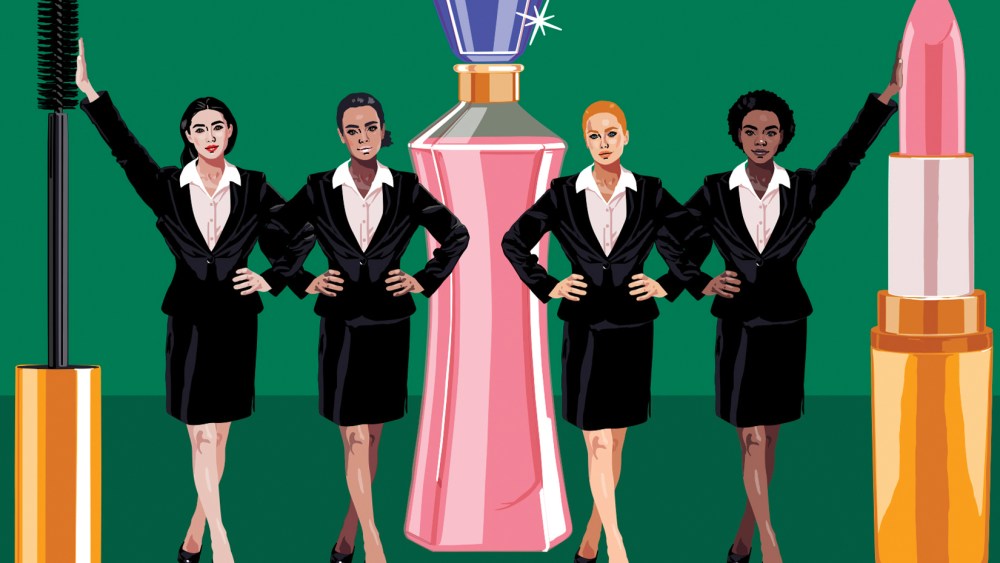On a recent Thursday evening in New York City, a group of around 15 beauty founders, editors and investors met for a Provence-themed dinner in Chelsea where they connected over lavender-colored cocktails and light bites.
Invite-only Girl Dinner NYC is the brainchild of Noelle Crooks and Alex Bushman, who wanted to recreate that “influencer dinner” experience with “curated themes, ambience and gifting” for different groups of women in business. That particular evening, it was beauty-focused.
“I’ve always believed there’s room at the table for all women to succeed, and that’s why I created Girl Dinner NYC,” said Crooks. “It’s a space where ambitious women come together to share the real highs and lows of their journeys.”
Networking is still critical when it comes to beauty founders raising capital, too. While the landscape has improved slightly, there is still a long path ahead for female founders to reach the levels of funding received by their male counterparts, and start-ups across the board face greater difficulty securing capital in the face of recent economic stressors, according to Pitchbook.
In its report in conjunction with Deloitte, Pitchbook found that with $3.2 billion invested in 2023, all-female-founded companies represented a single-digit percentage of total U.S. venture capital activity, laying bare the importance of networking.
“Raising money is all about access to networks,” said Dee Poku, founder of The Wie Suite, a private-membership community and peer-learning platform for women in leadership. “It’s impossible to raise money without a network, whether you’re male or female.”
She believes that if a founder is not networked, they’re going to take exponentially much more time figuring out how to get to each individual.
“It’s a mistake that a lot of women make because they hate networking,” she continued. “Then they get to the point where they’re trying to raise and they’re spending an inordinate amount of time trying to figure it out, and then you become super-inauthentic, because you’re like, ‘Hey, I saw that you know blah, blah, can you introduce me when I haven’t spoken to you in like a year.’ You need to have those warm relationships organically, so that when you need something, it doesn’t feel like a weird out-of-the-blue request.”
The key, investors said, is building these relationships over time, sometimes years.
Alicia Sontag, cofounder and managing partner of Prelude Growth Partners, which backs the likes of Summer Fridays, Tower 28, Phlur, Skin Pharm and Westman Atelier, builds relationships in some cases over years before she invests.
“When you’re a founder taking on an investment, or you’re an investor investing in a brand, it’s a big commitment, and it’s a relationship that will last years,” she said. “On our side, we tend to build relationships for three months, six months, it could be three years before we invest behind a brand and really get to know one another.”
Cristina Nuñez, cofounder and general partner of True Beauty Ventures, agreed, stating that she likes to spend a lot of time getting to know founders before taking the plunge.
“We just had people come into our office and they’re talking term sheets, and they wanted to meet us and they’re interesting founders and it’s an interesting business,” she said. “But we don’t know them yet as people and as founders and entrepreneurs. We don’t know what their superpowers are yet, because we haven’t seen that in action, so it’s tougher for us to pull the trigger.”
Nuñez advised, though, to be selective when it comes to networking.
“Quality is much more important than quantity,” she said. “Be selective and identify the right groups. One purpose is fundraising, so you want to be networking with investors of all types. There could also be networking for the purposes of just growing your business, and getting advice from people who have been there, done that, and to learn from the founder community. Some of the most successful female entrepreneurs that I know have text groups or Slack channels or WhatsApp groups.”
Another benefit of networking is that while organizations can recommend investors, only other founders can truly recount what it’s like working with a particular individual or company.
“They can better learn about the criteria, and also the styles that each of them have from a funding size, and philosophies and values perspective to how they work together on a day to day basis,” said Kelly McPhilliamy, managing director of Harris Williams. “An entrepreneur can fall in love with a particular investor, but that entrepreneur’s needs may not fit the mandate of that investor.”
“I always tell every founder, whether we partner with them or not, that it’s so critical that they do referencing on investors are going to do referencing on them and talk to people that know them,” said Alisa Carmichael, a partner at VMG. “Ultimately that’s going to give you the best understanding of how the investors work and how they think about building brands.”
As for where this networking takes place, it can be anywhere and everywhere.
Female Founders Fund founding partner Anu Duggal recently hosted the fourth annual Camp FFF, a private retreat in the Hamptons for female founders and investors. “Especially in more challenging macroeconomic conditions, it is incredible to see how women who are building incredible companies uplift each other and learn from one another,” she said.
Ritual founder and chief executive officer Katerina Schneider and Olive & June founder/CEO Sarah Gibson met in 2019 when they co-recorded an episode for “Scandal” actress Katie Lowes’ podcast about mom entrepreneurs, quickly becoming friends and exchanging experiences and tips for fundraising, scaling and more. They since added more women founders to a WhatsApp group and now meet for dinners.
“It’s so awesome to have a network of women who are going through the same journey together,” said Schneider. “You can just be open about all of the good and the bad. It is different to be surrounded by other women business leaders than it is males.”

